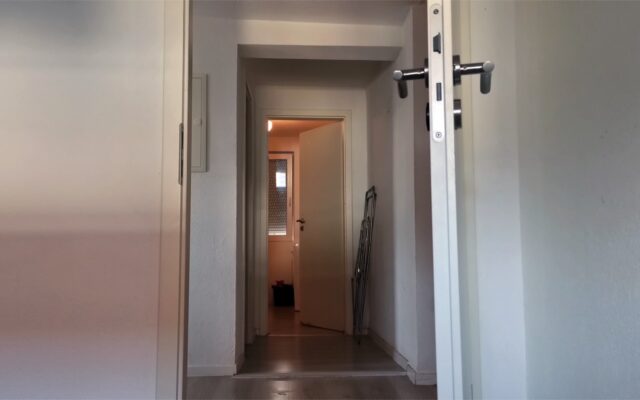Douglas Meyers, a gentleman of 97, has made some legal history, regarding safeguarding obligations in cases of capacitated risk-taking where a person is involved codependently with another.
He has been told he cannot allow his son to live with him in his own home, because of the effect of the son’s influence on his safety – despite the father retaining the presumption of capacity as to where he himself should live.
This development matters to any family determined to cope ‘no matter what’ with adult offspring at home who are seen as presenting ‘challenging’ behaviour. The process used in this case and its outcome provide some calm leverage in safeguarding negotiations, so it is important for staff and families to be aware of the legal framework. The case also extends the scope of safeguarding obligations beyond mere Court of Protection processes when the carer is the greater focus for concern but cannot get over their sense of duty to their relative.
The judge refused the declaration sought by Southend Council that it had discharged its responsibilities to Meyers and suggested further steps were intrinsic in its duties. He exhorted the council:
‘I regard it as intrinsic to the council’s duties here actively to promote the reunification of this family to support the care arrangements … The wider family may be able to unlock the unhealthy interdependency between Meyers and his son, given the time, the space and the support to do so.’
The meaning of ‘respect’ for family life in article 8 of the European Convention on Human Rights (ECHR), and the duty to promote wellbeing in the delivery of Care Act functions are excellent justifications for any council taking proactive steps, such as:
- Paying for mediation or non-statutory advocacy
- Using section 222 of the Local Government Act 1972 to bring proceedings to at least suspend a licensee’s occupation rights, in the authority’s own name, if the owner cannot be persuaded to do so.
Background
Meyers was 97, blind, and had diabetes and osteoarthritis. He had long allowed his son to live with him, and had promised his deceased wife he would look after him.
<<The case extends safeguarding duties when the carer is the focus of concern but cannot get over their sense of duty>>
His son was addicted to drugs and alcohol and often behaved intimidatingly; around 10 care companies had withdrawn their services because of this and the condition of the property. The father understood the consequences and did not manage or control the son’s behaviour. Other adult offspring had given up and become estranged.
In March 2017, injunctions were made prohibiting the son from behaving in an aggressive or intimidating manner towards professionals attending the property or from impeding or interfering with any works to it. Extensive renovations were carried out to make the home habitable again; both of the men moved out during the works then returned. However, Southend continued to encounter difficulties in providing support because of the problems associated with the son’s behaviour.
One agency agreed to become involved again, but only if the council provided personal safety devices for the care staff. After a month, the agency felt unable to continue and council social workers stepped in to provide weekly welfare visits (because there is at the very least a duty to monitor even if it is not possible to do anything else). There was further intimidating behaviour by the son towards the social work staff and the property started deteriorating again.
By June 2018, the council declared that, having reasonably done all it could to provide the father with care, it should be discharged from all duties owed to him. A meal would be delivered daily, and he could contact the council and seek assistance if he wanted. This device is open to any council but very rarely used.
In September 2018, the father was found on his bed with no mattress or sheets, surrounded by flies, blood, food, faeces and clutter. He was cold, in pain, had been without food or drink for several days and was hallucinating. He was eventually persuaded to go to a care home by ambulance.
Legally, it was arguable that, as a result of his age and increasing infirmity, he had lost capacity to make decisions about his residence. An ex parte order was granted requiring him to live in residential care provided by the council, pending further order of the court. In October 2018, he agreed to abide by the courtÕs order; he maintained that he was content not to return home, not to live with the son, and to submit to a capacity assessment.
The council helped him prepare a termination notice for the son’s licence to reside at the property, which was served on the son but not enforced. The son remained at the property. A psychiatrist confirmed that Meyers did have the requisite capacity to make decisions on where he should live, including whether the son should live at the property.
In December, the urgent applications judge heard evidence and submissions on capacity and enabled the father to participate in proceedings by telephone. The judge was critical of Southend, but only as the case had become urgent because opportunities for more timely and reflective intervention had been missed.
The council endorsed the view of Meyers’ advocate that his relationship with his son was ‘codependent’. Meyers told the judge that his son was ‘basically a good lad’ and that ‘he was not as bad as people made out’. The judge summed up the position by saying that Meyers had a ‘real resolve to live and thrive’ with an ‘unfailingly positive’ attitude and, despite his physical limitations, ‘engages with the world and the issues of the day’. He added: ‘There are times when Mr Meyers is vociferously critical towards his son … There has been at least one occasion when Mr Meyers has locked his room to keep his son out. He effectively asserts his own autonomy by protecting himself’.
The judge nevertheless maintained the injunction until any further order was made, binding him not to live in his own bungalow nor to live with his son, and to stay at a care home specified by the council. The Court of Appeal refused permission to appeal against that interim order, and ruled that such orders could be deployed for the protection of vulnerable adults, even if they were not incapacitated by mental disorder or mental illness, if it was reasonably believed they were under constraint or subject to coercion and therefore deprived of the capacity to make the relevant decision, make a free choice or consent. Where the influence is that of a parent or other close and dominating relative, it may be ‘subtle and powerful’ and ‘very little pressure may suffice to bring about the desired result’.
<<Where the influence is that of a close relative, very little pressure may suffice to bring about the desired result>>
The implications of this case are:
- In such circumstances, the court is bound by the ECHR and its case law and must only impose orders that are necessary and proportionate, and have proper regard to personal autonomy
- In certain circumstances, it may be appropriate for a court to take or maintain interim protective measures while carrying out all necessary investigations
- In an emergency, someone may be deprived of their liberty in the absence of medical evidence of mental disorder without infringing the EHCR.
This man was a vulnerable adult on this footing and unquestionably in need of protection. So, by December, expert evidence of his capacity notwithstanding, there was prima facie evidence of an unsound mind by reason of his infirmity and other ‘extraneous circumstances’.
People found not to be of unsound mind cannot be detained in circumstances that amount to a deprivation of a liberty, but a move home in these circumstances was something that required very careful planning and support, and delaying that by injunction was entirely consistent with the man’s overall human rights.
Final hearing
A final hearing was held in February 2019. The outcome was that Meyers was prevented from living with his son and the son’s contact with him was restricted. The orders needed would restrict Meyers’ choices, but not his liberty; the son’s influence was disabling the father from making a truly informed decision. Returning home without appropriate care would put the father’s life in jeopardy because, even if there was no clear evidence of the son forcing his father to act against his will, ‘the intensity of this relationship occludes Mr Meyers’s ability to take rational and informed decisions’.
Meyers was effectively compelled to evict his son from home or would be unable to return there at all. This was not inconsistent with his human rights, because, the court noted, it was evident that Meyers was determined to keep well and continue living, and his life would be jeopardised by going home without an appropriate package of care while his son remained there. The judgment spoke of the ‘needy, irrational and frequently out of control’ son exerting an ‘insidious and pervasive’ influence on the father, who clearly loved him. The relationship between the two had become ‘so enmeshed that the autonomy of each has been compromised… In reality, the son exerts an influence over his father which is malign in its effect if not in its intention. The consequence is to disable Mr Meyers from making a truly informed decision which impacts directly on his health and survival.’
The son’s treatment of his father was described as ‘not merely … neglectful but abusive and corrosive of his dignity’. For this reason, the court’s decision to encroach on Meyers’ personal autonomy was ‘a justified and proportionate intervention’.
The judge added ‘the preservation of a human life will always weigh heavily when evaluating issues of this kind’. He concluded: ‘Mr Meyers may live in his own bungalow, with an appropriate package of supportive care, conditional upon his son’s exclusion from the property’, and this restriction on his autonomy was proportionate with regard to his rights under article 8 of the ECHR, concerning respect for private and family life.
Southend-On-Sea Borough Council v Meyers [2019] EWHC 399 (Fam) (20 February 2019) www.bailii.org/ew/cases/EWHC/Fam/2019/399.html
Belinda Schwehr is chief executive of legal advice charity CASCAIDr (www.CASCAIDr.org.uk) and owner of the Care & Health Law consultancy. She has been a barrister, solicitor advocate and university law lecturer.





